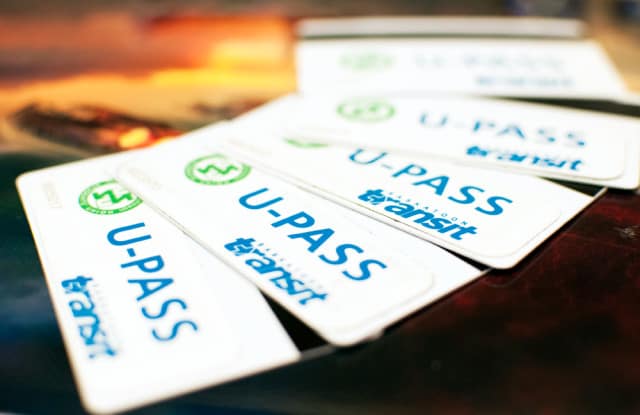ALICE GODSON

Graduate students could be slapping U-Pass stickers onto the back of their student cards by next fall if they vote to approve the $110.85 per term mandatory fee.
Graduate students will vote on PAWS Feb. 27 to decide whether or not they will finally get a universal bus pass, or U-Pass.
The referendum comes after a petition with over 500 signatures was brought to the Graduate Students’ Association in September expressing graduate students’ interest in a U-Pass similar to the one currently provided for undergraduates.
If the majority of graduate students vote in favour of the motion, the U-Pass will be instituted on a one-year trial period. At the end of the trial, graduate students will vote in another referendum whether or not to permanently implement the U-Pass.
The proposed U-Pass will cost $110.85 per term and is subject to future price increases. The pass will be available for each of the three graduate semesters: September to December, January to April and May to August.
Currently, graduate students can buy a bus pass through Saskatoon Transit. A four-month pass costs $253 while a monthly pass costs $78.
The cost of the U-pass would be a mandatory part of graduate student fees for every term that a student is enrolled, unless a student fulfills at least one of the four opt-out criteria.
Students would be eligible to opt out if they live outside of city limits, live in on-campus housing — Ogle Hall, Voyageur Place Residence, Lutheran Theological Seminary and St. Andrew’s College — are enrolled exclusively in distance education courses, or are unable to ride the bus due to a disability. Because of the traveling graduate research can involve, students may also opt out if they will be out of the city or country for several months during a term.
GSA President Ehimai Ohiozebau believes the GSA has negotiated a fair price for its approximately 3,500 members.
He said the undergraduate students’ union charges less for the U-Pass — $73.51 per term — because of collective bargaining.
“The Uof S Students’ Union has over 17,000 students and definitely with collective bargaining, their power is high.”
Saskatoon Transit and the GSA negotiated the conditions of the U-Pass for the referendum. The GSA cannot become a part of the undergrad U-Pass because the two unions are considered two separate entities.
In 2007, both the GSA and USSU voted on implementing their own U-Pass programs. The majority of graduate students were not in favour while the undergraduates moved ahead with the program.
Reanne Ridsdale, a graduate student leading the GSA’s U-Pass committee, believes the reason the U-Pass was voted down in 2007 was that few people knew about the vote.
She thinks the U-Pass has become more desirable because “climate change has gotten worse… the bus systems have improved and gas is more expensive.”
Ryan Boivin, a political studies graduate student, is in favour of the U-Pass. He believes there are many graduate students who need the U-Pass for transportation, even if he would not use the pass often himself.
“I think a lot of new graduate students are coming from out of province and it would be beneficial if they had access to the Saskatoon Transit system provided by the Graduate Students’ Association,” Boivin said.
Mohammad Rafati, another member of the GSA U-Pass committee, suggested that the U-Pass would increase graduate students’ mobility, which would in turn allow students access to housing throughout Saskatoon, rather than just near the university.
Correction 14/2/13: An earlier version of this article incorrectly listed Feb. 28 as the day the GSA will hold its vote on the U-Pass. The vote will actually be held on Feb. 27.
—
Photo: Raisa Pezderic/The Sheaf
Leave a Reply